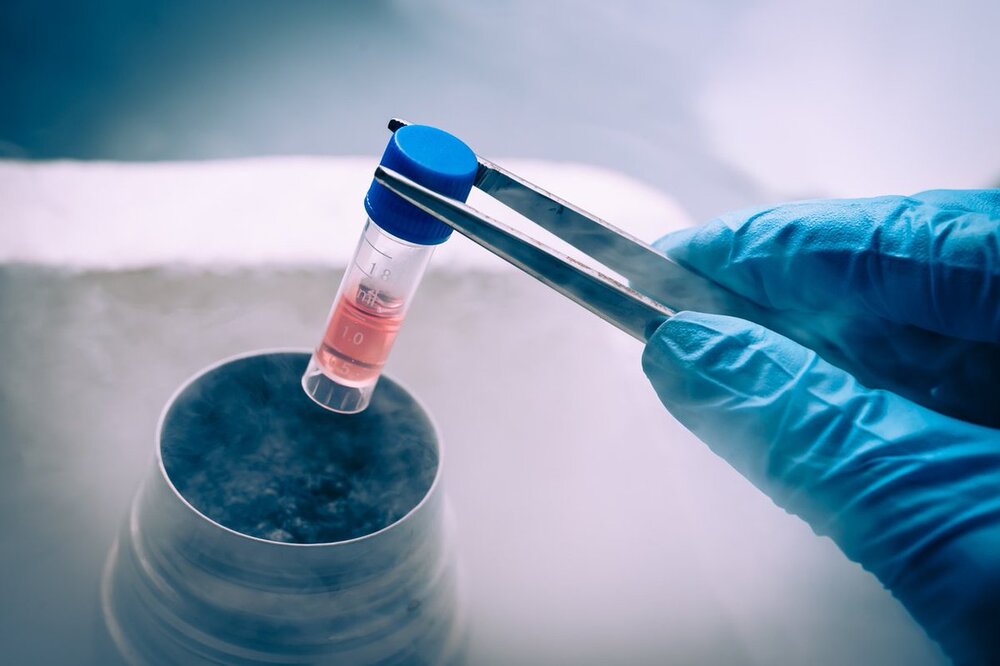Need Help?
We are here to help.
We care for each one who come to us with hope in their hearts.


Fertility preservation refers to the process of preserving reproductive potential for the future. It’s a common misconception that preserving fertility is limited to women freezing eggs. Methods include preserving eggs, sperm, embryos, or reproductive tissue, allowing individuals or couples to have their own biological children in the future.

Assisted Reproductive Technology (ART) has made groundbreaking advancements in the past decade, especially in India. It has made it possible for couples to bear children and achieve their dreams of the family they deserve, despite unfortunate health ailments and other reasons, such as delayed marriages, through several techniques. These techniques were unthinkable until recently.
One such technology, which is fast gaining acceptance and momentum with urban Indian women, is oocyte cryopreservation, more commonly known as egg freezing.
Women in today’s day and age no longer wish to be married and have children by the age of 30. They are much more independent, career-oriented, and ready to experiment before they take on the challenges of marriage and motherhood.
However, the biological makeup of a woman only allows her to produce the highest quality eggs before the age of 30. That then continues to deteriorate, especially after the age of 35. In such cases, oocyte (egg) cryopreservation, which involves egg extraction, freezing, and storage, allows women to secure future childbirth without compromising on their freedom and wishes.
Female fertility preservation through egg freezing is also used to secure motherhood for women suffering from diseases such as cancer. Treatments like chemotherapy, surgery, or radiation often destroy the eggs and lead to infertility. Depending on the risk, age of the woman, type of cancer, and cancer-treatment plan, doctors recommend egg freezing as an option for women suffering from the disease.
Another medical indication for egg freezing is when the male partner of the couple undergoing IVF is unable to collect a semen sample for oocyte insemination on the day of the oocyte retrieval. The egg must be preserved until the male is ready for sample collection.
Males with severe infertility may have insufficient sperm for the fertilization of revived oocytes. In such cases, oocytes may be cryopreserved for insemination and embryo transfer in the future.
We stimulate the ovaries of the woman opting for oocyte cryopreservation using fertility medications.
Follicle-stimulating hormone is self-administered in the form of a daily injection for about a week. We then monitor the ovarian response over about two weeks. If successful, multiple eggs reach maturation during a single treatment cycle.
Once the eggs are deemed ready, oocyte harvest, or egg retrieval, is carried out under mild sedation. It’s a procedure that takes about 10 to 15 minutes. The retrieved eggs are then frozen using either a slow-freeze method or a flash-freezing process known as vitrification.
Note: The egg is dehydrated, and the water is replaced with an antifreeze to prevent ice crystal formation and damage to the cell. Women freezing can expect them to be stored for up to 10 years. Despite that, research data only proves effectiveness for up to 2 years.

The average success rate of this process sits around 40%–50%. The success, however, depends on the quality of the eggs.
Generally, younger women have higher-quality eggs than older women. Numerous studies prove that egg quality declines as a woman ages. For this reason, egg freezing tends to be more successful in women who undergo the process of freezing eggs at a younger age.
The best outcomes for egg freezing tend to be for women who freeze their eggs when they are younger than 35.
The limited research available, given that it is a relatively modern technique. Despite that, it indicates the process is safe concerning the health of the babies born from frozen eggs. There’s no indication of an increased rate of birth defects/chromosomal defects reported when compared to the general population/embryos derived from fresh eggs.
However, one must keep in mind that the usual risks of using fertility drugs apply to the fertility treatment involved. There’s also less evidence to prove how many eggs will survive the freezing and thawing process for successful fertilization.
Sometimes, it may give women a false hope of future pregnancy, which may or may not happen. As expected, that can then lead to emotional turmoil and complications.
With that in mind, Advance Fertility recommends women consider several factors, such as the risks of this procedure and the likelihood of their eggs surviving the process, when deciding whether to store their eggs for future use.
Our case study involves a 32-year-old unmarried lady with breast cancer. Before undergoing chemotherapy, we froze 18 eggs. She came back 3 years later, this time married. We prepared her uterus, defrosted the eggs, and fertilized them using her husband’s sperm by a process called intracytoplasmic sperm injection (ICSI).
We successfully retrieved 8 viable embryos. We transferred 3 into her uterus and froze the other embryos. She got pregnant in that treatment cycle and now has a one-year-old boy.
If she wishes to come back for a second child, we could use the other embryos. This is nothing less than a scientific morale, which was not possible even a few years ago in our country!
It depends on your age, AM levels, and AFC count. Dr. Banerjee herself assesses and gives the overall chances. It is good to freeze at least 8 good eggs (M2).
The cost of women freezing eggs depends on multiple factors. Contact our coordinator today at +91-9871250235, who will give a detailed overview of costs.
Embryo cryopreservation involves fertilizing a woman’s eggs with sperm in a laboratory to create viable embryos. The resulting embryos are then frozen and stored for later use. This is preferred when the woman has a stable male partner.
This experimental procedure involves removing and freezing ovarian tissue for later reimplantation or in vitro maturation. It is mainly offered to girls or women who have not reached puberty, those with certain medical conditions, or those who cannot delay immediate cancer treatment.
If you are considering freezing eggs, Advanced Fertility is the leading fertility centre in India. Contact our experts today by calling +91-9871250235 or by emailing contact@advancefertility.in today. We’re ready to help you find a treatment plan exclusive to your specific health condition and needs.
We care for each one who come to us with hope in their hearts.

Disclaimer – Dr Kaberi is not associated with any Hosptial/Clinic other than “Advanced Fertility and Gyne Center (AFGC)”. AFGC has only four centers at present 1. “Lajpat Nagar” 2. “CR Park Delhi” 3. “Noida” 4. “Gurgaon“.